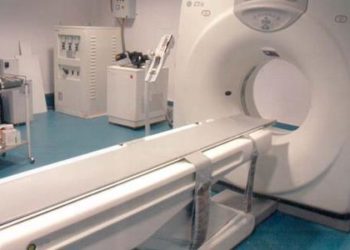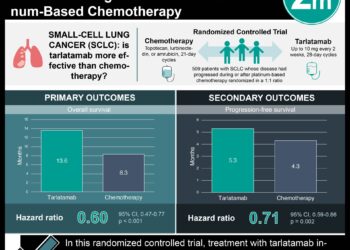Lung cancer screening may lower motivation for smoking cessation
1. Although lung cancer screening gave patients the opportunity to reevaluate their health, routine screening may also lower a patient’s motivation for smoking cessation.
2. A concerning misperception amongst smokers is the belief that undergoing imaging testing yields the same benefits as smoking cessation.
Evidence Rating Level: 3 (Fair)
Study Rundown: The most effective method to decrease the risk of lung cancer in smokers is obviously smoking cessation. However, following the publication of National Lung Screening Trial, many healthcare providers have begun offering lung cancer screening. However, it is still important to ensure that screening is not perceived as a substitute for smoking cessation. This study aimed to determine how the availability of screening influences patient’s motivations regarding cessation.
In this survey study, 49% of interviewees described that lung cancer screening lowered their motivation for smoking cessation, and endorsed the misperception that image screening provides the same health benefits as quitting. Other concerning beliefs included the perceptions that everyone benefits from screening, screening accurately determines your risk of cancer, screening catches your cancer early and may have saved their lives, screening reduces the need to have to undergo cancer treatment, and that a negative screening result deemphasizes the personal harm from smoking. Strengths of this study include use of semi-structured interview style to encourage rich description of participants’ perceptions. However, the study is limited by having a low participation rate, and by not having quantitative analysis for quitting rates.
Click to read the study, published today in JAMA Internal Medicine
Relevant Reading: Reduced lung cancer mortality with low-dose computed tomographic screening
In-Depth [survey]: This qualitative interview study conducted 45 in-depth semi-structured qualitative telephone interviews with 37 patients from the Veterans Health Administration, regarding health beliefs related to smoking and lung cancer screening. The surveys were conducted between May and September 2014. The 37 participants were current smokers who were offered lung cancer screening by their primary care physicians. Data was analyzed from June 2014 to March 2015. Statistical analysis includes simultaneous deductive and inductive content analysis with a priori determined thematic codes.
In all, 37 of the 186 patients approached took part in the study, resulting in a participation rate of 19.9%. There were no significant differences in demographic characteristics of veterans who participated and those who declined. Three major themes relating to how lung cancer screening may impact attitudes around smoking cessation were identified, including that universal screening evokes multiple complex emotions about smoking in participants, that screening is seen as an external method of change which contrasts the internal challenge of quitting smoking, and that screening may wrongfully emphasize cancer as main harm from smoking while ignoring cardiovascular risks. Five misperceptions were identified, including that screening was a highly valuable service because everyone receives a benefit, belief that screening provides a more precise estimate of their risk of developing cancer, the perception that detection of a nodule meant that screening worked for the participant and caught the cancer early at a harmless stage, belief that screening reduced the likelihood of needing cancer treatment, and the underestimation of the personal harm from smoking.
Image: PD
©2015 2 Minute Medicine, Inc. All rights reserved. No works may be reproduced without expressed written consent from 2 Minute Medicine, Inc. Inquire about licensing here. No article should be construed as medical advice and is not intended as such by the authors or by 2 Minute Medicine, Inc.









